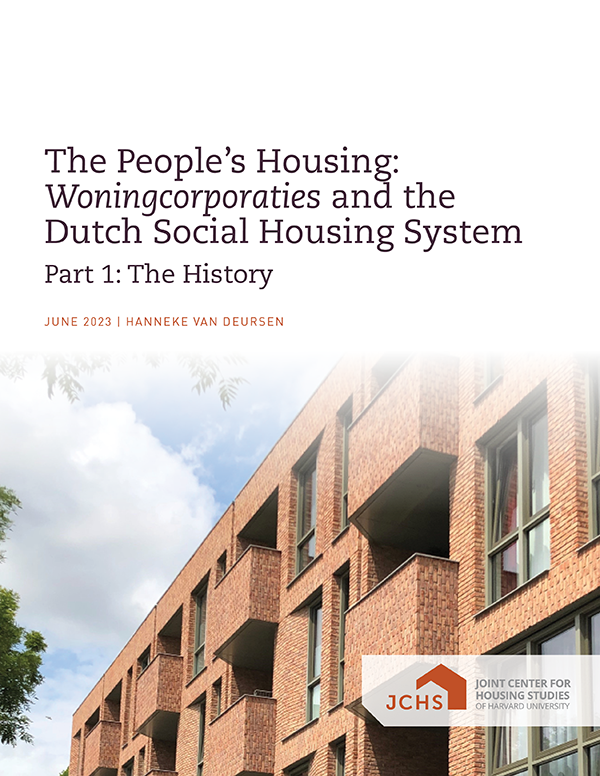The People’s Housing: Woningcorporaties and the Dutch Social Housing System
Social housing makes up 29 percent of the total housing stock in the Netherlands. While the definition of “social housing” has changed over the last 120 years, as of 2022 it means 29 percent of housing in the Netherlands is leased for less than €763 per month. What makes the Dutch system unique is that its social housing is built, owned, and managed by a robust and decentralized network of 284 non-profit housing associations. In total, the housing associations own about 2.3 million units, making social housing an €87.3 billion sector. Even more striking, the housing associations do not receive any direct subsidy to fund their activities. They are able to manage and maintain their housing stock on a revolving fund from rental income and they make use of long-term loans to fund construction projects. These features of the Dutch social housing system—that it is a decentralized system of non-profit organizations independent from the state; that they own almost one-third of the country’s housing and keep it off of the market; and that the system operates on a revolving fund, requiring no direct state subsidy—make this system a fascinating case study for countries around the world looking for new models to provide affordable housing. The first of a two-paper series, this paper tells the story of how the modern system came to be. Throughout this history, the resilience of the social housing system is apparent, as housing associations adapt over and over to the conditions of their time. The history proves to be foundational to the modern system, which is able to operate on such a large scale only because of the investments of the past.

